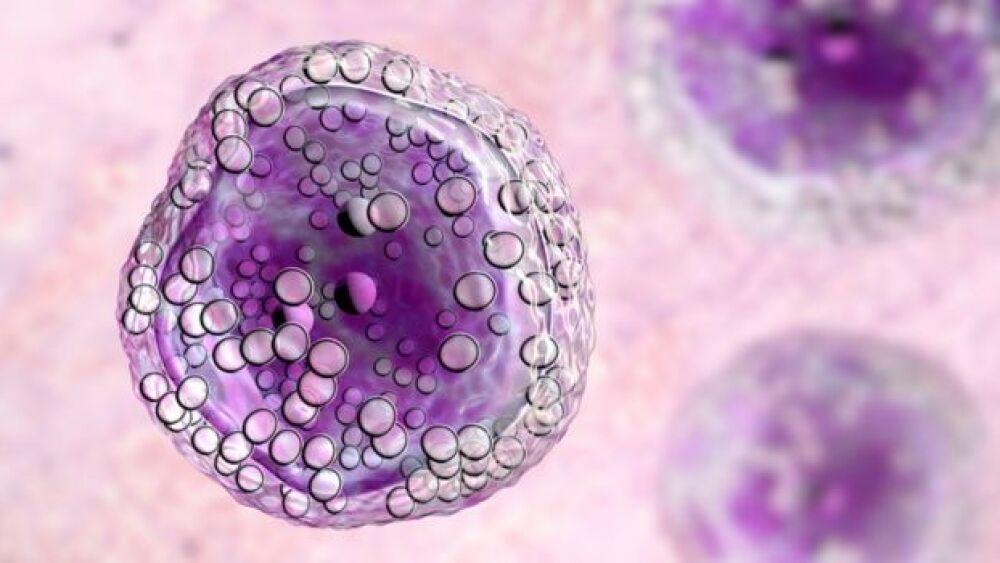In a Phase I trial, Caribou’s allogeneic CAR-T cell therapy candidate induced high rates of treatment response in patients with relapsed or refractory B cell non-Hodgkin lymphoma.
Pictured: 3D illustration of a lymphoma cell/iStock, Dr_Microbe
Long-term follow-up data from the Phase I ANTLER trial showed that Caribou Biosciences’ investigational allogeneic CAR-T cell therapy CB-010 safely induced high rates of treatment response in patients with relapsed or refractory B cell non-Hodgkin lymphoma, the company announced Thursday.
Following the data drop, Caribou unveiled plans for an upsized public offering, putting more than 19.2 million shares of its common stock up for sale for $6.50 per share. The company expects to make approximately $125 million in gross proceeds.
In the ANTLER trial, 15 of the 16 patients with evaluable data responded to CB-010 treatment, resulting in an overall response rate (ORR) of 94%. This group included 11 participants, or 69% of the study sample, who achieved complete response (CR). In the subgroup of patients with large B cell lymphoma (LBCL), ORR was 90% and CR was 70%.
By six months, however, CR had dropped to 44%, with only seven patients remaining completely free from all signs of the malignancy.
“CB-010 dose escalation data rival the responses from autologous cell therapies and demonstrate the potential utility of an off-the-shelf CAR-T cell therapy that could, if approved, provide greater access to patients in need,” Caribou CEO Rachel Haurwitz said in a statement.
The autologous competitors include Gilead’s Yescarta (axicabtagene ciloleucel), which according to its label induced an ORR of 72% and CR of 51% in aggressive relapsed or refractory B cell non-Hodgkin lymphoma (r/r B-NHL). Bristol Myers Squibb’s Breyanzi (lisocabtagene maraleucel), meanwhile, had an ORR of 73% and CR of 54% in patients with r/r-LBCL after two lines of therapy.
Thursday’s data come from the dose-escalation portion of ANTLER, a non-randomized and open-label study of r/r B-NHL patients who had previously received the standard of care. All 16 patients assessed for long-term, follow-up treatment response had aggressive disease and had undergone at least two prior lines of systemic therapy or had not responded to treatment.
ANTLER also looked at safety and found a generally acceptable toxicity profile. Seven patients, corresponding to 44% of the study sample, developed cytokine release syndrome—a common CAR-T cell side effect characterized by a hyper-aggressive immune response. ANTLER also detected two cases of treatment-emergent immune effector cell-associated neurotoxicity syndrome (ICANS) that were grade 3 and above.
With these promising Phase I data, Caribou is planning to start CB-010 in Phase II studies. The plans include a current ongoing dose-expansion portion of ANTLER, which will help the company identify a recommended dose for further clinical evaluation. Initial dose-expansion data are expected in the first half of 2024.
Tristan Manalac is an independent science writer based in metro Manila, Philippines. He can be reached at tristan@tristanmanalac.com or tristan.manalac@biospace.com.






